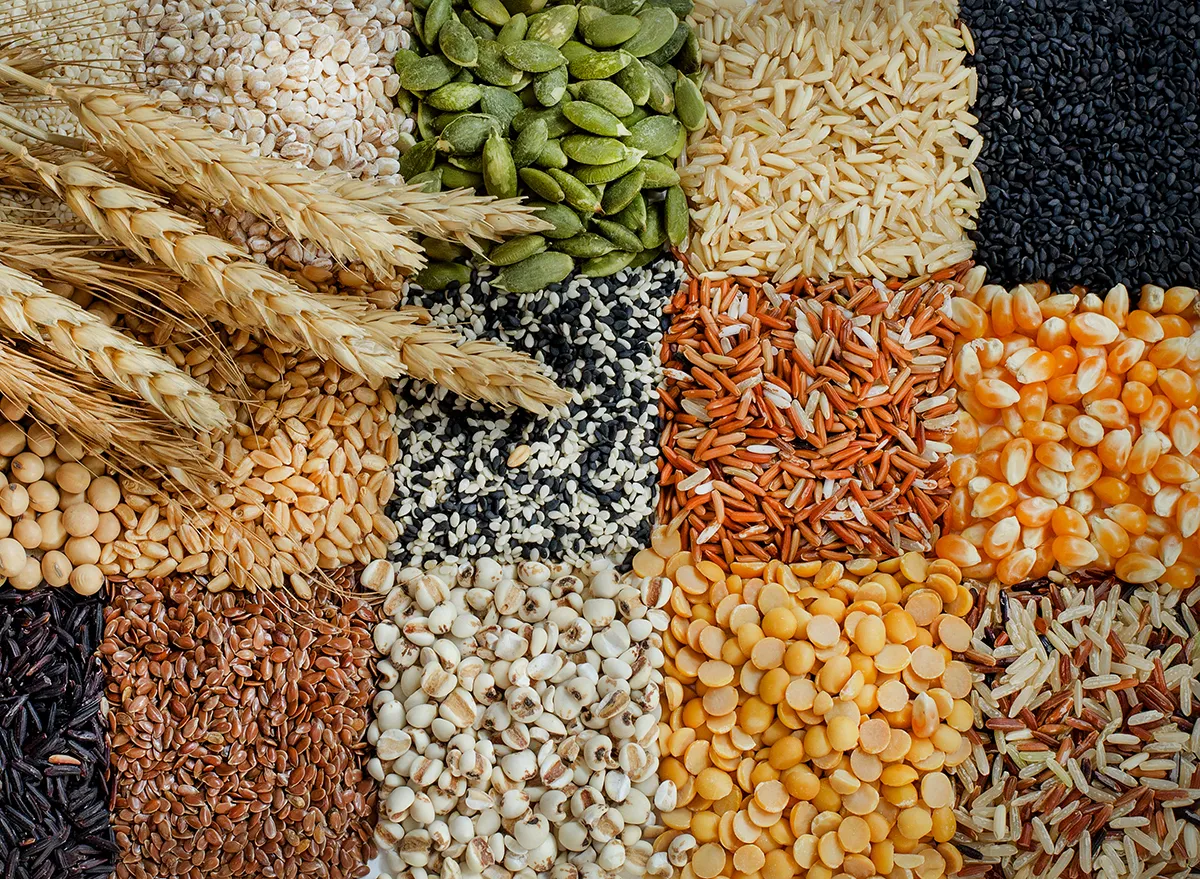What’s the Difference Between Grain-Free and Gluten-Free Diets?

You’ve heard of a gluten-free diet, but have you heard of a grain-free one? The paleo diet calls for the elimination of anything processed, which includes grains, but a specifically grain-free diet is less popular.
We wanted to find out what the difference is between a grain-free and a gluten-free diet, so we called on Ben Frohlichstein and Stacey Marcellus, cofounders and co-CEOs of Cappello’s, a gluten- and grain-free, paleo-friendly pasta, pizza, and cookie dough company, plus Kelli McGrane MS, RD for the food-tracking app Lose It!, for insight on the health benefits of a grain-free diet.
What’s the difference between a grain-free and gluten-free diet?
“Gluten is a protein found in many cereal grains, including wheat, barley, rye, and triticale. In a gluten-free diet, only grains and products containing gluten are eliminated,” says McGrane. “A grain-free diet eliminates all grains, including ones that are gluten-free, including rice and corn. As a result, the grain-free diet is much more restrictive.”
Marcellus points out that the Grains and Legumes Nutrition Council splits grains into three categories: grains containing gluten, gluten-free grains, and gluten-free pesudo-cereals, which include quinoa, buckwheat, and amaranth. Gluten-free pseudo-cereals, also known as pseudograins, are grown from a flowering broadleaf pseudocereal. Conversely, grains are grown from the grass.
“Most who embrace a grain-free lifestyle are looking to ease digestive issues, relieve inflammation, and balance gut health. Going grain-free means going that extra step beyond gluten-free and eliminating all grains, including corn, rice, and quinoa,” she says.
What are the health benefits of a grain-free diet?
Marcellus says that grains are known to raise blood sugar and contain antinutrients, or plant compounds that hinder the body’s ability to absorb essential nutrients.
These compounds are hard for the body to digest, especially for those who suffer from celiac disease, chrons disease, and even those with gluten sensitivities. Processed grains such as white rice also have a higher glycemic index, meaning that it raises blood sugar, which can be problematic for those with diabetes. Plus, as Frohlichstein points out, “the quality of gluten-free alternatives most often are still nutritionally inferior to gluten-containing products.”
McGrane explains that while diets free of grain are believed to reduce chronic inflammation, assist with weight loss, and even alleviate bloating, long-term research that supports these claims in healthy individuals doesn’t currently exist. In fact, what does exist is research that suggests whole grains help to reduce inflammation.
“However, the Specific Carbohydrate Diet, which is a type of grain-free diet, has been shown to help reduce symptoms in individuals with inflammatory bowel disease,” says McGrane.
As is the case with just about any diet that requires the removal of some type of food, whether current long-term research on healthy individuals exists or not shouldn’t deter one from trying the diet if they feel like it will help them specifically.








